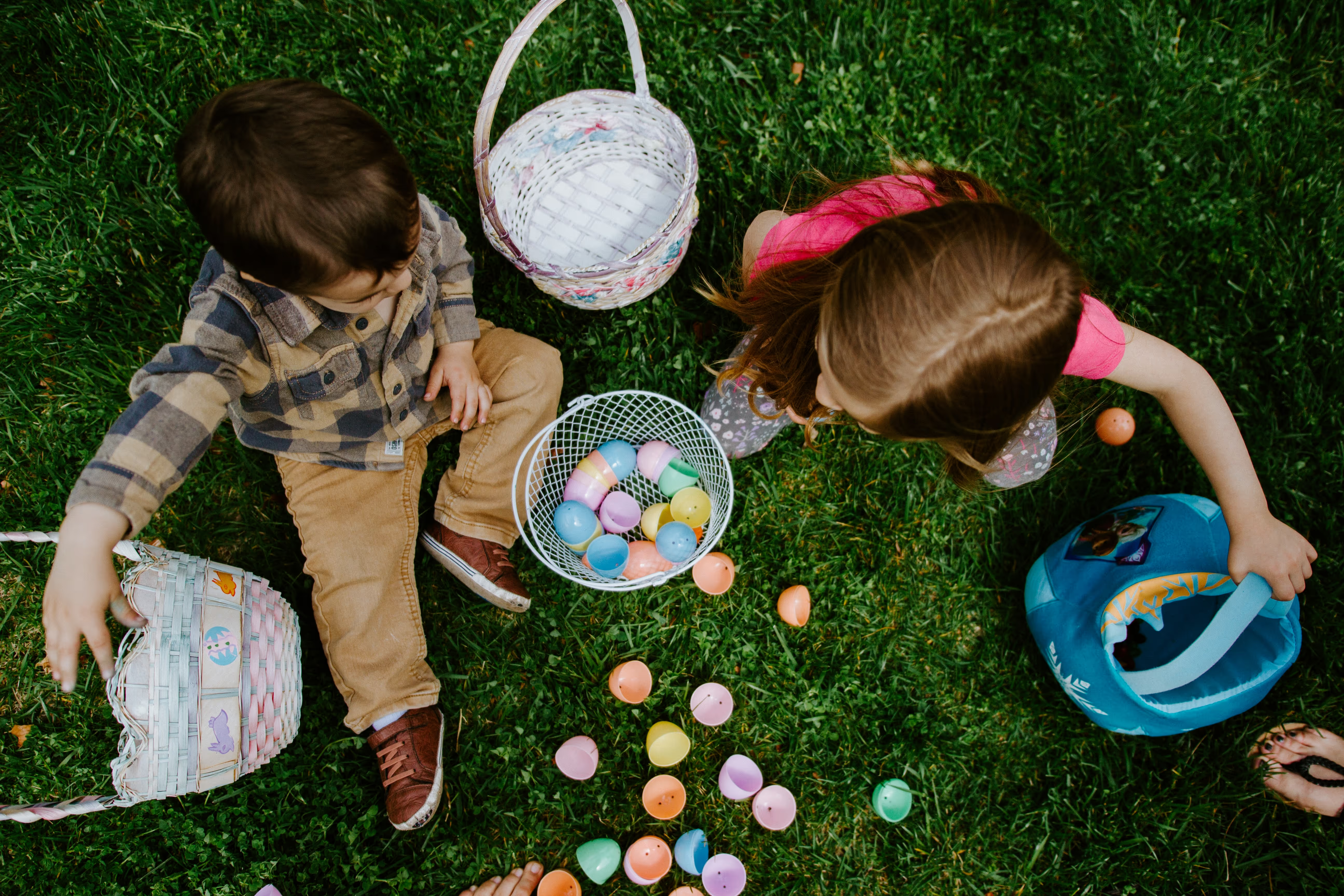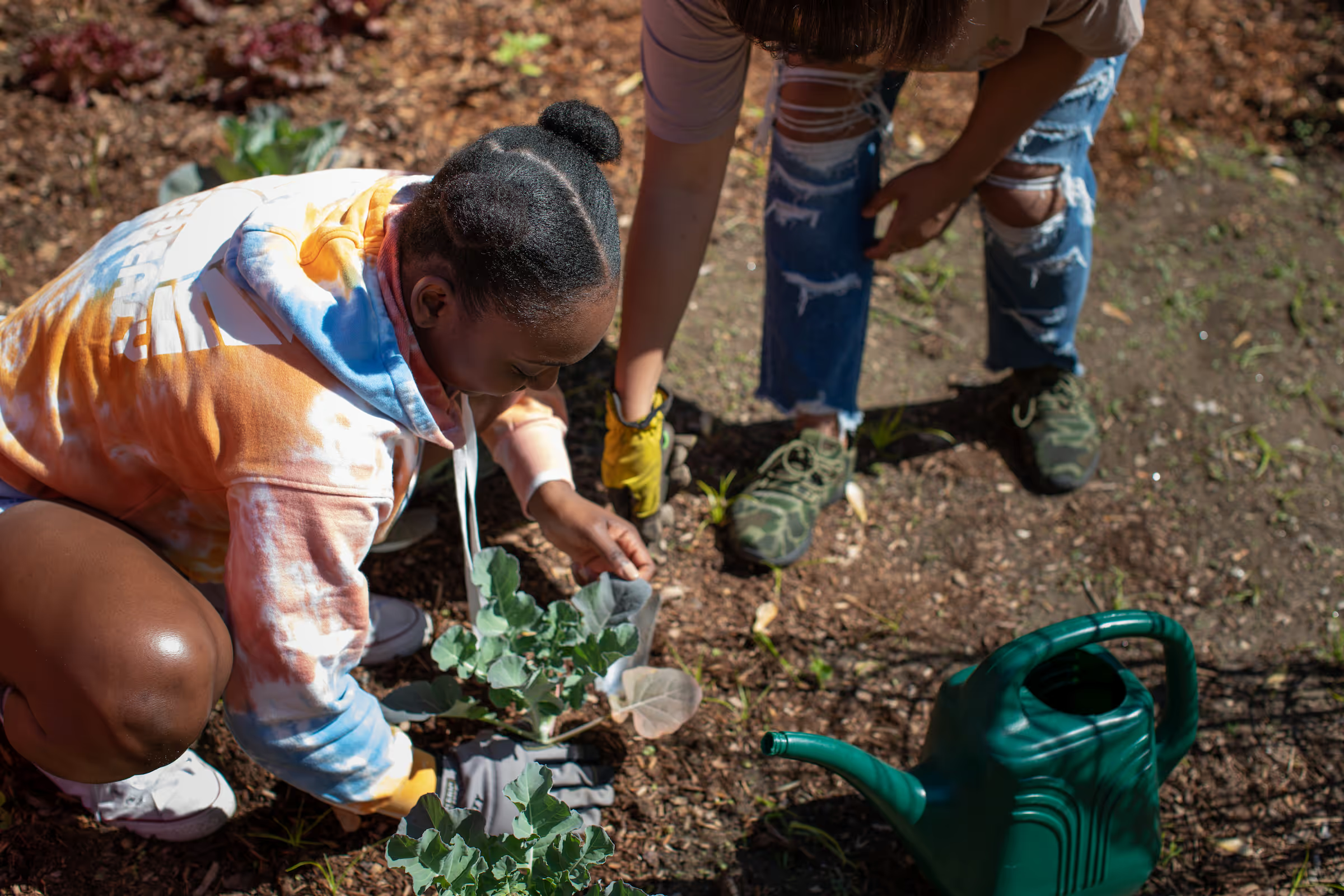Guaranteed to teach you things you never knew.
28 Fun and Meaningful Family Traditions to Treasure Forever
Find out why family traditions are so important and how you can start new ones for your own family. Plus, examples from around the world!
My mom started a tradition at the family dinner table when I was growing up. Each night she would ask me two questions - “What did you learn today?” and “What are you grateful for?” As any child might do, I would normally roll my eyes or give her my favorite response, “nothing.” But she would persist and pull meaningful highlights out of me for us to share and bond over.
I still appreciate this family tradition to this day and have since continued the sentiment with my own family. It created a safe space for me to talk about my life and problems but still reflect on things in a positive way. That’s what the best family traditions do. They create a sense of belonging and build lasting memories.
No matter what your family looks like exactly - from a single-parent household to a tight-knit group of friends - family traditions are a beautiful way to build connections. So whether you’re looking to start new traditions or cherish old ones, we’ve gathered a fun list to bring your family together.
If you're interested in preserving memories of your family traditions, our Remento Book can transform these stories into a keepsake for you and your family to cherish.
What are family traditions?
Family traditions are activities, routines, and behaviors that are repeated and passed down from generation to generation within a family.

Family traditions can be as simple as a weekly dinner night or as involved as a play, rehearsed and showcased for the extended family each year. They can be unique to one family or more universal, often tied to holidays or important events. Traditions are what preserve your family’s heritage and values and the wide variety of choices reflects cultural, religious, and personal influences.
Traditions vs. Customs
Family traditions are somewhat different than customs. Traditions tend to be more flexible than customs which are generally tied to cultural or societal norms.
While traditions normally apply to a particular family or group, customs are expectations of behaviors widely accepted and practiced within a defined community.
Traditions vs. Rituals
Traditions and rituals are similar in that they both involve the repetition of certain activities or behaviors, often with symbolic or cultural significance. However, there are some key differences.
Family traditions can be secular or religious in nature and can vary widely in their significance and meaning.
Rituals, on the other hand, are more structured practices typically carried out within a specific cultural or religious context. They often have a deeper symbolic or spiritual meaning and are performed with a specific set of rules or procedures.

Why are family traditions important?
Family traditions bring us together, create a shared set of values and help define what your family means to you.
Here are some reasons to continue or start a new family tradition.
1. They create a sense of belonging and connection within a family: Family traditions help bring family members closer together and strengthen their bonds.
2. They provide stability: Family traditions offer a sense of familiarity and predictability, which can be especially comforting in times of change or uncertainty.
3. They preserve cultural heritage: Family traditions can help to preserve and pass down important cultural habits and shared values from one generation to the next.
4. They create lasting memories: Family traditions provide opportunities for shared experiences and create special memories that can be cherished for a lifetime.
5. They foster a sense of identity: Family traditions shape a family's identity and help children understand their role in the world.
6. They provide opportunities for fun: Many family traditions involve activities or events that are enjoyable and provide a chance for family members to have fun together.
7. They teach important values and skills: Family traditions can provide opportunities for teaching and learning important values, such as responsibility, teamwork, and generosity.
Common types of family traditions across cultures
Even though family traditions are often shaped by cultural, religious, or national influences many types of family traditions are shared around the world.
We love to focus on the stories that unite us and remind us of our commonalities. Does your family have any favorite traditions that fall into these categories?
- Holiday celebrations: Many families have traditions related to holiday celebrations such as Christmas, Hanukkah, and Diwali. These traditions often involve food, decorations, and other cultural rituals. Holidays are also a great chance to gather and start new conversations.
- Family dinners: Families around the globe place a lot of importance on gathering for meals. This can be a time for catching up and sharing what’s happening in each other’s lives.
- Annual events: It is common to take images during such gatherings to remember the day. Next, you can use a holiday photo editor to improve pictures, decorate them with frames, etc.
- Birthday traditions: Birthdays are a natural reason to celebrate and honor loved ones each year. Many families have special traditions like singing Happy Birthday, eating a birthday cake, or blowing out birthday candles.
- Bedtime routines: Reading your children bedtime stories, tucking them under the covers, or singing lullaby songs are common family traditions that communicate love to your family at bedtime.
- Religious traditions: Many families share religious traditions such as prayer or attending church, mosque, temple, or other religious services.
- Sporting events: Sports are important across cultures, whether it’s baseball, basketball, soccer, or something else. Many families have traditions to attend games together or watch important championships as a family on TV.
- Revering elders: Respecting and remembering elders through ceremonies or visiting with older family members is an important family tradition to preserve the memories of loved ones.

Examples of traditions you can start with your family
Traditions should be fun, memorable, and unique to your household. While some of these examples might be familiar to you we think you’ll find a few inspiring enough to start with your family!
Family traditions for any time of year
1. Have a family movie night
2. Dedicate time to community service
3. Interview a family member
4. Fill a jar with impromptu experiences to choose from
5. Leave love notes for your family to find in their lunch
6. Cook favorite family recipes
7. Expand on a family scrapbook
8. Cherish and preserve family heirlooms
9. Have a family bonfire (and s’mores!)
10. Go on a family camping trip
11. Start a family walk or bike ride
12. Have a board game night
13. Tell bedtime stories to your children
14. Cook a special weekend breakfast
15. Put together a family time capsule
16. Pass down family stories
17. Write letters to your children for important milestones
18. Say family grace each night
19. Plant a tree or shrub to honor a relative

Family holiday traditions
20. Set up an Easter egg hunt in the yard
21. Go apple picking at an orchard
22. Carve a pumpkin for Halloween
23. Cut down your own Christmas tree
24. Watch the same holiday movies each year
25. Go Christmas caroling in your neighborhood
26. Fill Christmas stockings and hang them in the house
27. Open one present on Christmas Eve
28. Stay up until midnight on New Year’s Eve
How to create your own family traditions
Sometimes the most meaningful traditions are created organically as your family grows and spends time together.
Starting new family traditions can be a fun way to capture your distinctive family identity. If you want to create your own tradition consider these helpful steps to get you started.
- Figure out your family’s interests and values: Think about the things that are most important to your family and what you would like to pass down to future generations. Is your family active? Performative? Reflective? This can help you come up with ideas for traditions that are meaningful and relevant to your family.
- Involve your family in the process: Invite your family members to brainstorm ideas for traditions together. This can help everyone feel invested in the traditions and ensure that they align with everyone's preferences.
- Start small: You don't need to create a big, elaborate tradition right away. Start with something small and simple, and gradually build from there. This is especially helpful if you’re trying to teach small children new things (or persuade a teenager!)
- Be flexible: It's okay if your traditions evolve over time. Don't be afraid to make changes or adjustments to your traditions as your family grows and changes.
- Have fun: Above all, remember to have fun and enjoy spending time together as a family. This is what makes traditions meaningful and special.
Pass family traditions down to future generations
Passing traditions down to future generations is an important way to preserve your family’s culture and values, strengthen family bonds, and create lasting memories. It's never too late to start creating your own family traditions, and involving your entire family in the process can help ensure that the traditions are meaningful to everyone.
One way to celebrate and appreciate your family’s unique traditions is to document them with a free storytelling app like Remento. Remento lets you save and share video recordings of your family so you can pass traditions down to future generations with ease.
Ready to document family traditions?
With Remento, it's never been easier to collect your family's stories, including the stories of your family's traditions. Simply questions about traditions to your Remento account and upload photos that bring your favorites to life. Each week, you or a family member will be invited to record an answer from any smartphone, tablet, or computer - no downloads required. Then, Remento turns the recordings into written stories, each of which is printed into a hardcover, keepsake book. Read the book, or scan the QR codes within it to play the original recording. Learn more about Remento today.
Next up: 11 Creative Ways to Preserve Family Memories – And Pass Them Down

Their stories, forever at your fingertips
Remento’s life story books turn a parent or grandparent’s memories of the past into a keepsake book for the future - no writing required,.
Capture priceless family memories today
Join the thousands of families using Remento to preserve family history, all without writing a word.
.avif)
